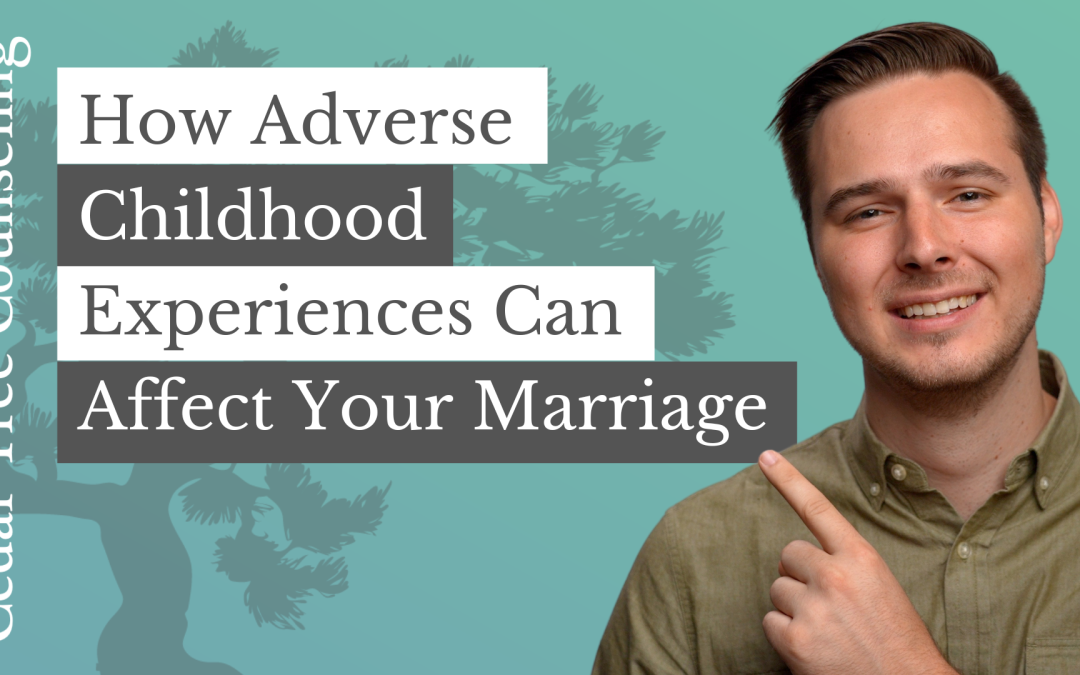Many couples find themselves bringing past pain into current relationships and might not know how to manage it. Some partners realize their childhood experiences are affecting their marriage.
Others may be experiencing conflict in their marriage and have no idea it could be related to their childhoods. In reality, a lot of relational conflicts can be traced back to childhood experiences.
Events that are considered disruptive, harmful, and even traumatic are usually considered “adverse childhood experiences” or “ACEs.” ACEs are defined as abuse, neglect, or household dysfunctions that are overwhelming to children.
When considering abuse, some examples from the CDC include:
- Physical abuse
- Emotional abuse
- Sexual abuse
- Physical or emotional neglect
Household dysfunctions can include:
- A mother treated violently
- An incarcerated relative
- Parental substance abuse
- Divorce
The Impact of Adverse Childhood Experiences
Whether we realize it or not, these experiences shape the way we relate to others, our chances of successful adulthood, and much more. One way we see the impact is in marriages.
Perhaps your spouse speaks words to you that are all too familiar, words and phrases you grew up hearing. Whether from an abusive parent or as the reason for a divorce, you might have been told “you’re wrong,” “It’s all your fault,” and “You’re not good enough.”
These words sting and they linger to form narratives about your life, ultimately forming a message that you are not worthy of love. This is a very common cause of breakdowns in communication and the start of conflicts.
Your partner may have been talking about an incomplete household task but what you hear is the same childhood message of “you’re not good enough.” And that is what you respond to, a negative belief of your past from your adverse experiences.
Without the awareness of the negative messages you respond to, it will be difficult to stop this conflict cycle.
Another impact ACEs can have on marriage is setting up a confusing dance of “I want you but I don’t trust you.” Trauma impacts the way we trust others. When our primary caregivers do not meet our emotional or physical needs, it becomes harder to trust others.
This can lead to a push/pull dynamic in an intimate relationship in later adulthood. There could be a desire for intimacy but a lack of trust for your partner.
If you are being impacted by ACEs in your marriage, know that you are not alone. Developing a healthy relationship with a your partner is one of the ways to heal. If you want to understand how to move forward, schedule a couples counseling appointment today.

Rob Agnew
Adolescents, Individuals, & Couples
When I work with couples, adults, and teenagers, I create a place that’s safe for being vulnerable at your own pace. Together, we explore your emotions and dive deeper into understanding your story which give us clues about healing and how to meaningfully move forward.
Choose A Topic!
Cedar Tree's Mission:
There are a lot of broken families who struggle to do life well together.
That’s why we help families create an environment where deeper connection & healing can happen.


